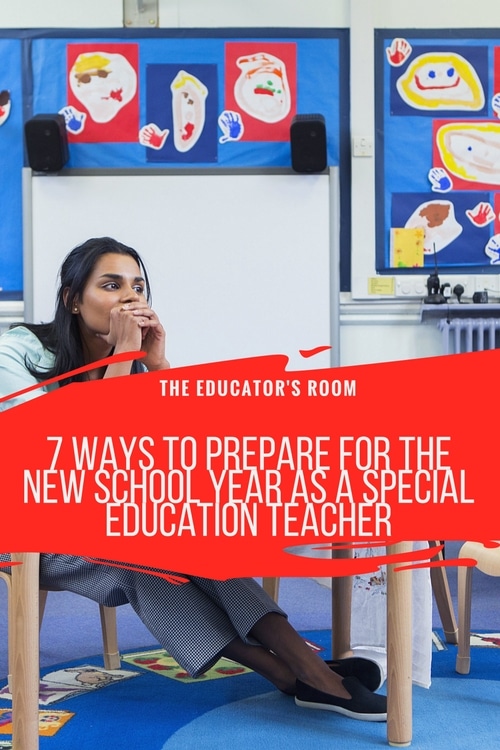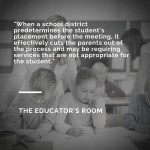Teachers everywhere are clamoring to prepare for the impending arrival of students. The teacher workdays often get filled with required workshops and meetings, so we must prioritize our time with the most essential items to ensure we’re prepared as much as possible. The fact is, we will only get done what we get done, and the rest will fall into place later. A lot goes into preparing for students in those vital days before school begins. So while you’re setting up your room, make sure you take care of the important things first.
As a special education teacher, you want to hit the ground running, so here are:
Seven Ways to Start the Year off Right
- Review the records of every child on your caseload. Yes, it’s time-consuming, but it’s worth it. Your job requires you to know the modifications, the goals, and re-evaluation dates, the related services, and the eligibility category of every child on your caseload. I create a spreadsheet that has the information of every student in my caseload so that I can easily refer to that information when I need it. If you create a Google Document, you can easily share that information with the people who need it and only the people who need it.
- Create modification sheets to pass out of the teachers of the students in your caseload. You want to make sure your students have their needs met, and this has to get done before the first day of school. I recommend meeting with the team involved with the student and explaining the needs of the students if you’re working in a team setting.
- Make a binder with the students in your caseload in it and put their goal sheets in it. You’ll need to keep documentation of how you’re meeting those goals throughout the year, and it’s important that you refer to it often. Make sure that you’re keeping this binder in a confidential area in your classroom.
- Make contact with your parents within the first two weeks of school. Make sure you do this before any negative interactions occur, especially if you have any students on your caseload that have behavioral concerns. It’s important to establish positive relationships with parents from the beginning so that they become allies instead of adversaries.
- Make sure your classroom is organized with expectations clearly posted. This is a classroom management must, but students with disabilities especially need to know expectations up from, especially if they have autism or behavioral issues.
- Have a plan in place for evaluating the needs of your students in the first few days of school. Data collection starts with pre-assessments. Know what programs you will use to assess your students and remain consistent. Use your assessments to drive appropriate instruction to fit the needs of your students.
- Create a space in your room for students who need to a cool-off area. Know that frustration will likely occur from time-to-time and it’s easier to deal with if you’ve planned ahead for it. Discuss your plan for dealing with frustration ahead of time with the students, how long they can stay in that area, and what they must do while they are there. A good strategy is to have them use a timer of some sort and rejoin the class after a predetermined amount of time. This way, students get a chance to cool off when they get frustrated, but they don’t miss out on an entire class period of instruction.
These are my top seven things to do when I’m preparing for the first days of school.
What do you do to prepare?
I also have a blog at www.embracingthespectrum.com where I write about my experiences working as a special educator and raising a son with Autism. Feel free to check it out.








Leave a comment